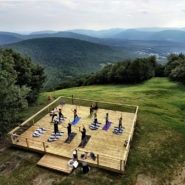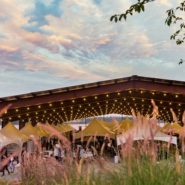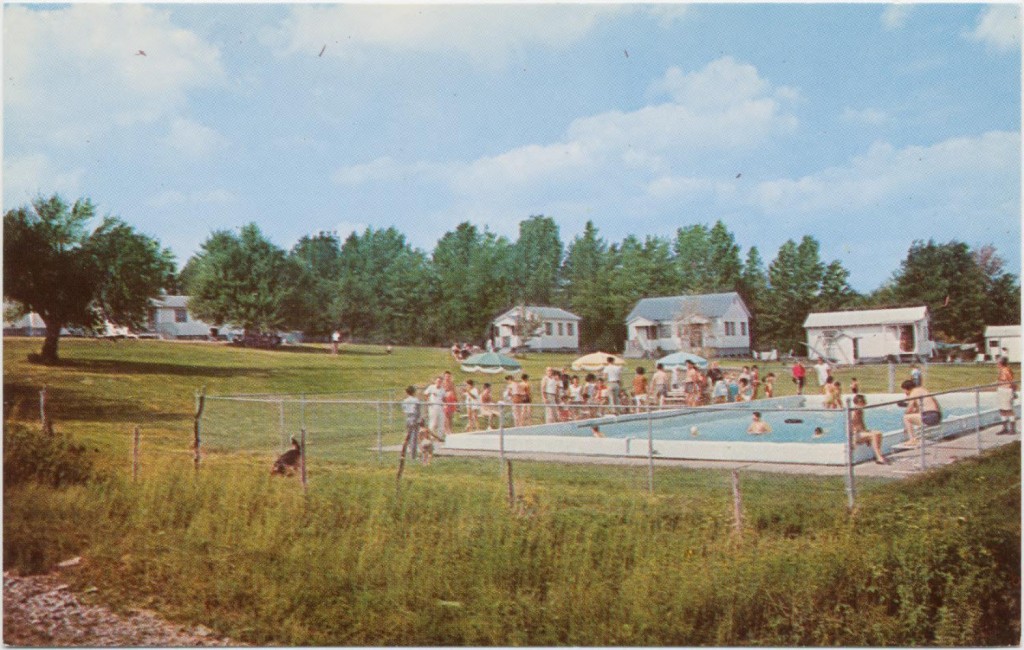Event: Catskills Writing Contest
Lisa Selin Davis | January 31, 2012The Catskills Institute is somewhat perplexingly housed at Brown University (would be a nice boost for the area to have it at, say, Sullivan County Community College). They do wonderful work archiving the history of the Borscht Belt, and they sponsor an annual conference. (We would love to be invited, hint-hint, to talk about reviving real estate in the area).
Now they’re started a writing contest, both fiction and non-fiction, for Catskills-themed literature. Here’s more of their announcement:
Non-Fiction Writing Contest: The Catskills and the Holocaust
The Catskills represent a central facet of the American Jewish
experience, most often associated with comedy, food, a unique vacation
style, and upward mobility for the young Jews who worked there. Though
often subtly present in fiction and memoir about the Catskills,
Holocaust survivors occupy a space central to, and yet at the same
time apart from, this community. Refugees of a war that decimated
their European population, these survivors sought a place to live in
peace, and to be with other Jews. However, when they came to America
they found a culture on the rise and a nation hopeful. The Jews in
America were eager to be part of the post-war boom, and survivors
found themselves on the margins even in Jewish Catskills communities.
While recent scholarship and fiction has addressed this Catskills
legacy, there has been no focused work on the experience of the
Holocaust and its immediate aftermath in the Catskills.
This contest, along with a parallel fiction contest, is part of a book
project, Summer Haven: How the Catskills Experienced the Holocaust,
edited by Dr. Holli Levitsky, Professor of English and Director of
Jewish Studies at Loyola Marymount University, and Dr. Phil Brown,
Professor of Sociology and Environmental Studies at Brown University,
which will provide a locus for literature exploring the experience of
the Holocaust in the Catskills.
There is wide latitude in the style of the essay. It might be an
historical research piece on a facet of the Holocaust in the
Catskills. It could be a memoir or biographical essay. Another
possibility is that the author may put him/herself into conversation
with an historic figure, possibly in the Catskills, who would be
dealing with the subject. Maximum length is 30 double-spaced pages.
The contest is sponsored by the Catskills Institute, Jewish Book
Council, the “1939” Club, the Sigi Ziering Institute at American
Jewish University, Brown University Judaic Studies Program, the Jewish
Studies Program at Loyola Marymount University, the Jewish American
and Holocaust Literature Symposium, and AskAbigail.com.
Submissions are due July 1, 2012. The contest will be judged by a
panel of eminent writers in the field of Jewish literature and
scholarship. On Sept.1, the judges’ decision will be announced. The
winner will receive $500 and up to $500 in travel costs to present the
essay at the November 11-13, 2012 Annual Jewish American and Holocaust
Literature Symposium in Miami, Florida. The essay will also be
published in the Levitsky and Brown book. If no submission meets the
judges’ or editors’ standards, the award will not be made. Authors
retain all rights to their work.
Essays should be mailed (one hard copy) to Phil Brown, Department of
Sociology, Brown University, Box 1916, Providence RI 02912 and emailed
to phil_brown@brown.edu.
——————————
Fiction Writing Contest: The Catskills and the Holocaust
The Catskills represent a central facet of the American Jewish
experience, most often associated with comedy, food, a unique vacation
style, and upward mobility for the young Jews who worked there. Though
often subtly present in fiction and memoir about the Catskills,
Holocaust survivors occupy a space central to, and yet at the same
time apart from, this community. Refugees of a war that decimated
their European population, these survivors sought a place to live in
peace, and to be with other Jews. However, when they came to America
they found a culture on the rise and a nation hopeful. The Jews in
America were eager to be part of the post-war boom, and survivors
found themselves on the margins even in Jewish Catskills communities.
While recent scholarship and fiction has addressed this Catskills
legacy, there has been no focused work on the experience of the
Holocaust and its immediate aftermath in the Catskills.
This contest, along with a parallel non-fiction contest, is part of a
book project, Summer Haven: How the Catskills Experienced the
Holocaust, edited by Dr. Holli Levitsky, Professor of English and
Director of Jewish Studies at Loyola Marymount University, and Dr.
Phil Brown, Professor of Sociology and Environmental Studies at Brown
University, which will provide a locus for literature exploring the
experience of the Holocaust in the Catskills.
There is wide latitude in the style of the story. It might be a
traditional short story on a facet of the Holocaust in the Catskills.
It could be a part factual-part fictional literary memoir of the
writer’s own personal or familial experiences. Another possibility is
that the author may put him/herself into conversation with an historic
figure, possibly in the Catskills, who would be dealing with the
subject. Maximum length is 30 double-spaced pages.
The contest is sponsored by the Catskills Institute, Jewish Book
Council, the “1939” Club, the Sigi Ziering Institute at American
Jewish University, Brown University Judaic Studies Program, the Jewish
Studies Program at Loyola Marymount University, the Jewish American
and Holocaust Literature Symposium, and AskAbigail.com.
Submissions are due July 1, 2012. The contest will be judged by a
panel of eminent writers in the field of Jewish literature and
scholarship. On Sept.1, the judges’ decision will be announced. The
winner will receive $500 and up to $500 in travel costs to present the
winning entry at the Jewish American and Holocaust Literature
Symposium in Miami, Florida November 11-13, 2012. The story will also
be published in the Levitsky and Brown book. If no submission meets
the judges’ or editors’ standards, the award will not be made. Authors
retain all rights to their work.
Submissions should be mailed (one hard copy) to Holli Levitsky, Jewish
Studies Program, Loyola Marymount, One LMU Drive, University Hall
3863, Los Angeles, CA 90045 and emailed to Holli.Levitsky@lmu.edu.
Read On, Reader...
-

-

Marie Doyon | November 23, 2021 | Comment The Mod House: A Mid-Mod Lodge & Speakeasy in Ellenville
-

-

Staff | May 24, 2019 | Comment Have a Bang-Up Memorial Day Weekend Upstate with These 5 Events

